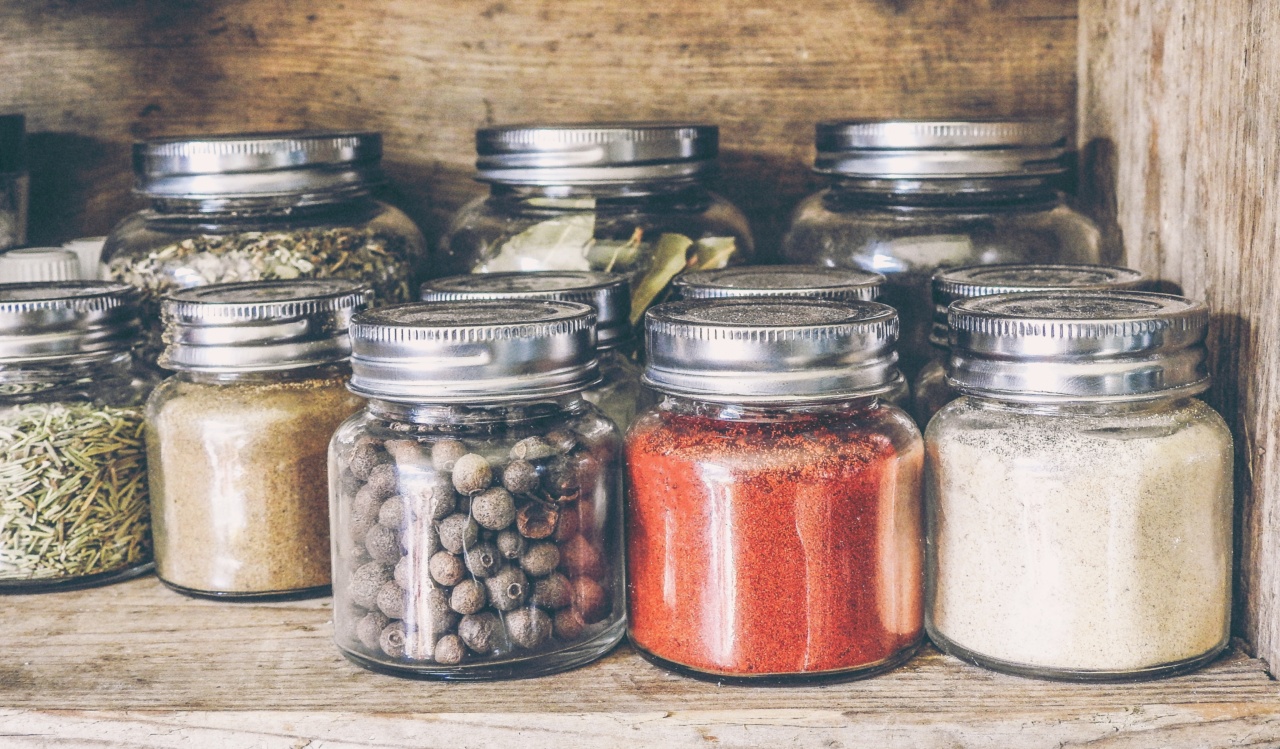When it comes to adding flavor to our favorite dishes, most of us automatically reach for the salt and pepper shakers. However, there are numerous herbs that not only enhance the taste of our food but also offer anti-inflammatory properties.
Incorporating these herbs into our meals can not only add a burst of flavor but also help reduce inflammation in our bodies, leading to improved overall health. In this article, we will explore five flavorful anti-inflammatory herbs that can revolutionize your culinary experience.
1. Turmeric
Turmeric, also known as the “Golden Spice of Life,” has been used for centuries in traditional Ayurvedic and Chinese medicine. This bright yellow spice contains curcumin, a compound renowned for its potent anti-inflammatory properties.
Curcumin has the ability to inhibit the production of inflammatory molecules in the body, making turmeric a powerful herb to combat chronic inflammation.
How to incorporate turmeric into your diet:.
- Add a teaspoon of turmeric to your morning smoothie or juice.
- Sprinkle turmeric over roasted vegetables for a flavorful twist.
- Use turmeric as a seasoning in your favorite curry dishes.
2. Ginger
Ginger is not only a versatile spice but also a potent anti-inflammatory herb. It contains gingerol and other bioactive compounds that can help reduce inflammation and alleviate symptoms of joint pain and arthritis.
Ginger has a distinct flavor profile that adds a pleasant kick to both sweet and savory recipes.
How to incorporate ginger into your diet:.
- Grate fresh ginger and add it to stir-fries for a burst of flavor.
- Brew ginger tea by steeping fresh ginger slices in hot water.
- Add minced ginger to salad dressings or marinades.
3. Cinnamon
Cinnamon not only adds warmth and depth to dishes but also offers anti-inflammatory benefits. It contains cinnamaldehyde, a compound known for its antioxidant and anti-inflammatory properties.
Incorporating cinnamon into your meals can help lower inflammation markers and improve blood sugar control.
How to incorporate cinnamon into your diet:.
- Sprinkle cinnamon over oatmeal or yogurt for a sweet and warming breakfast.
- Add cinnamon to your coffee or tea for a flavorful twist.
- Use cinnamon in baking recipes like muffins, cookies, or apple pies.
4. Rosemary
Rosemary is a fragrant herb that not only enhances the flavor of dishes but also offers anti-inflammatory and antioxidant benefits. It contains rosmarinic acid, a compound known for its ability to reduce inflammation and protect against cellular damage.
Incorporating rosemary into your cooking can add depth and complexity to various dishes.
How to incorporate rosemary into your diet:.
- Sprinkle dried or fresh rosemary over roasted potatoes or vegetables.
- Add rosemary to marinades for meat or tofu.
- Infuse olive oil with rosemary to use as a flavorful dressing or dipping sauce.
5. Basil
Basil is a popular herb in Mediterranean cuisine, known for its distinctive aroma and flavor. It contains essential oils, such as eugenol, that possess anti-inflammatory properties.
Basil can help reduce inflammation and provide relief from digestive issues, such as bloating and stomach cramps.
How to incorporate basil into your diet:.
- Toss fresh basil leaves into salads or pasta dishes for added freshness.
- Puree basil with olive oil, garlic, and pine nuts for a classic pesto sauce.
- Add basil leaves to soups or stews for a burst of flavor.
By expanding our culinary horizons beyond salt and pepper and incorporating these flavorful anti-inflammatory herbs into our meals, we not only make our food more exciting but also contribute to our overall well-being.
Experiment with these herbs and discover unique combinations that suit your taste buds, while also reaping their incredible health benefits!.






























